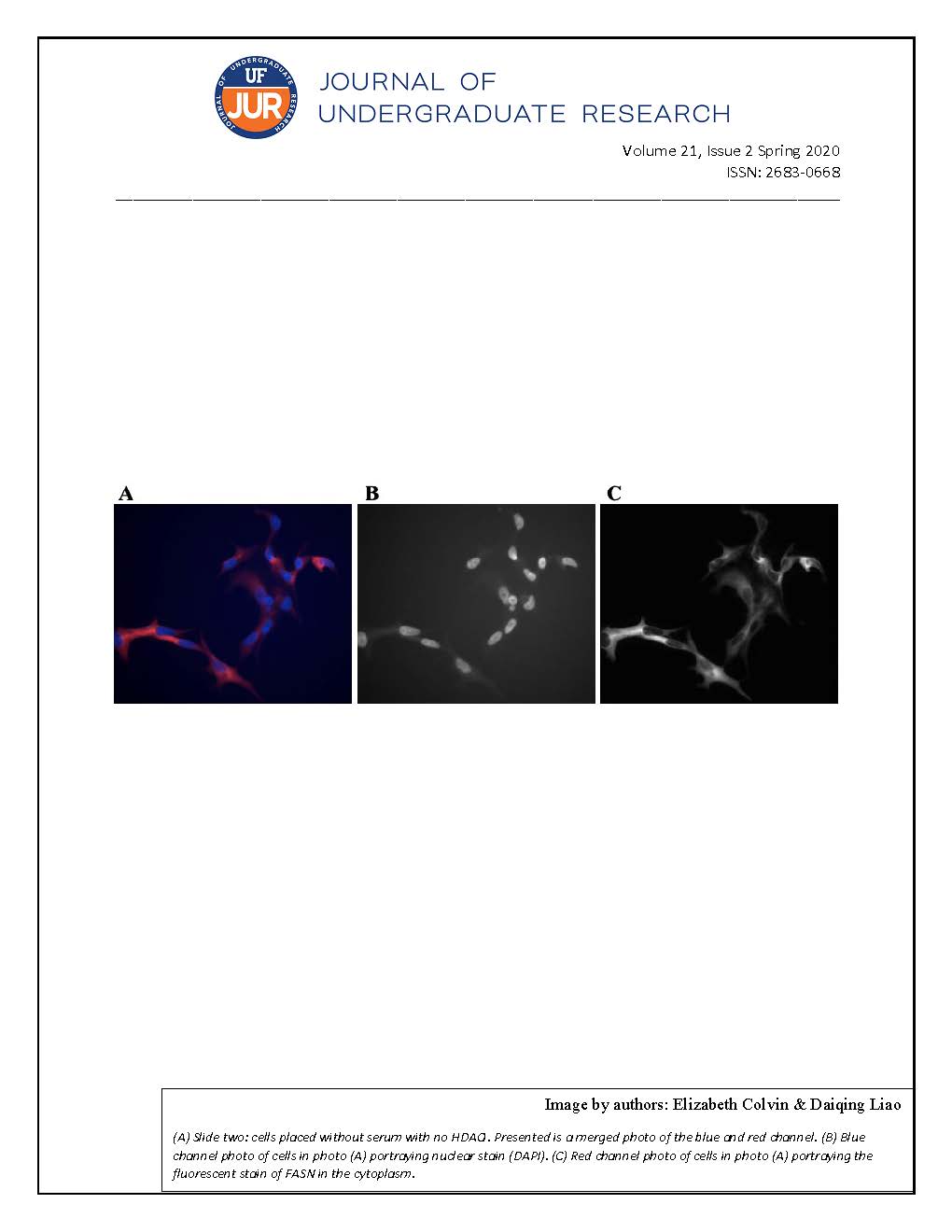Social Networks and Mental Health of Rural Latino Adolescents in North Florida
DOI:
https://doi.org/10.32473/ufjur.v21i2.108860Keywords:
Latino adolescents, Mental Health, Social NetworksAbstract
Abstract
There is limited research on mental health in rural Latino communities, particularly with adolescents. The aims of this study were to: 1) describe the evidence of social networks and mental health research in rural Latino communities and 2) illustrate themes related to the social networks and mental health depicted by rural Latino adolescents. A secondary data analysis study was performed, using data collected through semi-structured interviews (N=59) with adolescents, 11-17 years-old, living in three rural counties of North Florida. The interviews were conducted by community health workers (promotoras), in either Spanish or English; exploring family and community relations. NVivo 12 was used to aid in managing and thematically analyzing the data. Major themes were analyzed as Protective and Risk factors for mental health. A social network framework was then created under these themes including Family, School, Outside Community and Immigration Policy as main categories. The findings of this study highlight the need for mental health promotion interventions with rural Latino adolescents and can be used to influence future studies of social networks and mental health.
References
References
Baumann, A. A., Kuhlberg, J. A., & Zayas, L. H. (2010). Familism, mother-daughter mutuality, and suicide attempts of adolescent Latinas. Journal of Family Psychology, 24(5), 616-624. doi:10.1037/a0020584
Berkman L. F & Glass, T. (2000). Social integration, social networks, social support, and health. In: Berkman L.F, Kawachi I, eds. Social Epidemiology. New York: Oxford University Press; 2000:137-173.
Campos, B., Ullman, J. B., Aguilera, A., & Dunkel Schetter, C. (2014). Familism and psychological health: the intervening role of closeness and social support. Cultural Diversity and Ethnic Minority Psychology, 20(2), 191-201. doi:10.1037/a0034094
Cook, B., Alegría, M., Lin, J. Y. & Guo, J. (2009). Pathways and Correlates Connecting Latinos Mental Health With Exposure to the United States. American Journal of Public Health, 99(12), 2247-2254. doi:10.2105/ajph.2008.137091
Cupito, A. M., Stein, G. L., Gonzalez, L. M., & Supple, A. J. (2016). Familism and Latino adolescent depressive symptoms: The role of maternal warmth and support and school support. Cultural Diversity and Ethnic Minority Psychology, 22(4), 517-523. doi:10.1037/cdp0000097
Flores, A., López, G., Radford, J., (2018, June 13). Facts on Latinos in America: Current Data. Retrieved from https://www.pewhispanic.org/2017/09/18/facts-on-u-s-latinos-current-data/
García, C., Gilchrist, L., Vazquez, G., Leite, A., & Raymond, N. (2011). Urban and rural Immigrant Latino youths' and adults' knowledge and beliefs about mental health resources. Journal of Immigrant & Minority Health, 13(3), 500-509. doi:10.1007/s10903-010-9389-6
Gonzales, R. G. (2011). Learning to be illegal: Undocumented youth and shifting legal contexts in the transition to adulthood. American Sociological Review, 76(4), 602-619. doi:10.1177/0003122411411901
Hall, M., Fullerton, L., FitzGerald, C., & Green, D. (2016). Suicide risk and resiliency factors among Hispanic teens in New Mexico: Schools can make a difference. Journal of School Health, 2018 88(3), 227-236. doi:10.1111/josh.12599
Heaney C.A, & Israel, B.A. (2002). Social Networks and Social Support San Francisco, CA: Jossey-Bass; 2002.
Hirsch, J. K., & Cukrowicz, K. C. (2014). Suicide in rural areas: An updated review of the literature. Journal of Rural Mental Health, 38(2), 65-78. http://dx.doi.org/10.1037/rmh000001
Hirsch, J. K. (2006). A review of the literature on rural suicide: Risk and protective factors, incidence
and prevention. Crisis: The Journal of Crisis Intervention and Suicide Prevention, 27, 189– 199. doi:10.1027/0227-5910.27.4.189
Hofferth, S. L., & Moon, U. J. (2016). How do they do it? The immigrant paradox in the transition to adulthood. Social Science Research, 57, 177-194. doi:10.1016/j.ssresearch.2015.12.013
Leong F, Park, Y.S., & Kalibatseva Z. (2013). Disentangling immigrant status in mental health: Psychological protective and risk factors among Latino and Asian American Immigrants. American Journal of Orthopsychiatry. 2013;83(2,3):361-371.
Lopez, W. D., LeBron, A. M., Graham, L. F., & Grogan-Kaylor, A. (2016). Discrimination and Depressive Symptoms Among Latina/o Adolescents of Immigrant Parents. International Quarterly of Community Health Education, 36(2), 131-140. doi:10.1177/0272684x16628723
Nair, R.L, White R.M.B, Rosa M.W, Zeiders K.H. (2013). Cultural stressors and mental health symptoms among Mexican Americans: A prospective study examining the impact of the family and neighborhood context. Journal of Youth Adolescence. 2013; 42:1611–1623. [PubMed: 23111841]
Pong, S-L, & Landale, N.S. (2012). Academic achievement of legal immigrants’ children: The roles of parents’ pre- and postmigration characteristics in origin-group differences. Child Development. 2012; 83:1543–1559. [PubMed: 22966922]
Ryan, G.W., & Bernard, R.H. (2003). Techniques to identify themes. Field Methods 2003;15(85):85-109.
Smith, K. P., & Christakis, N. A. (2008). Social Networks and Health. Annual Review of Sociology(34), 405-429.
Stacciarini, J. M., et al. (2015). Rural Latinos' mental wellbeing: A mixed-methods pilot study of family, environment and social isolation factors. Community Mental Health Journal., U.S. National Library of Medicine, May 2015, www.ncbi.nlm.nih.gov/pubmed/?term=Stacciarini+AND+wellbeing.
Stacciarini, J. M., et al. (2014). I didn't ask to come to this country...I was a child: The mental health implications of growing up undocumented.” Journal of Immigrant and Minority Health, vol. 17, no. 4, 2014, pp. 1225–1230., doi:10.1007/s10903-014-0063-2.
Stein, G. L., Gonzalez, L. M., & Huq, N. (2012). Cultural stressors and the hopelessness model of depressive symptoms in Latino adolescents. Journal Youth Adolescence, 41(10), 1339-1349. doi:10.1007/s10964-012-9765-8
Tummala-Narra, P. (2015). Ethnic identity, perceived support, and depressive symptoms among racial minority immigrant-origin adolescents. Am Journal Orthopsychiatry, 85(1), 23-33. doi:10.1037/ort0000022
Vargas, E. D., & Ybarra, V. D. (2016). U.S. citizen children of undocumented parents: The link between state immigration policy and the health of Latino children. Journal of Immigrant and Minority Health, 19(4), 913-920. doi:10.1007/s10903-016-0463-6
Downloads
Published
Issue
Section
License
Some journals stipulate that submitted articles cannot be under consideration for publication or published in another journal. The student-author and mentor have the option of determining which journal the paper will be submitted to first. UF JUR accepts papers that have been published in other journals or might be published in the future. It is the responsibility of the student-author and mentor to determine whether another journal will accept a paper that has been published in UF JUR.

